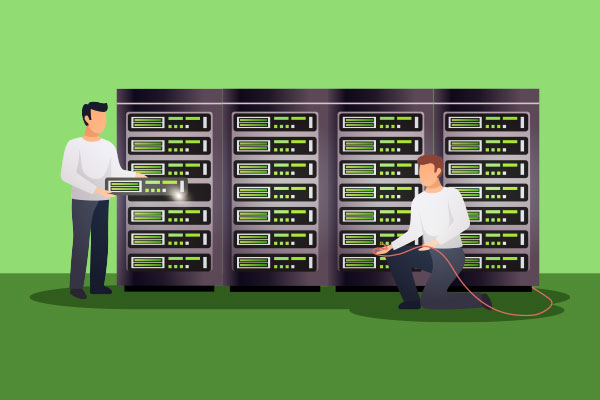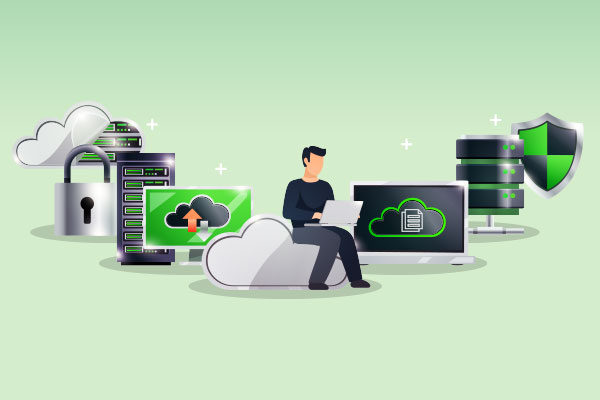This SysAdmin Day, We Got to Know Our Team Better

Five days a week (yes, sometimes more), we get up and go to work. We fire up our computers, send emails, print documents, video conference with colleagues, share information, upgrade a server or two, place orders, etc. And, we do all this without giving it a second thought. People take for granted that their network, computer, printer, etc., are up and securely running. Yet, every day, System Administrators compete against cyber threats, time and human error.
This Olympic year, we like to compare SysAdmins to the athletes competing. The athlete trains tirelessly to have the physical stamina to compete, while SysAdmins work tirelessly to keep businesses running smoothly.
- They complete a Triathlon to install the switches, configure the networks, and set up the firewalls.
- They help us stay connected and protected by Fencing off malware, spam, viruses and spyware.
- They run Marathons when the email server goes down and they’re paged at 2 AM.
- They Wrestle with password recovery and Weight Lift backups to guard against disaster.
They take care of it all, with the finesse of an Olympic athlete. In celebration of System Administrator Appreciation Day, we had some fun in an interview of our own SysAdmins, Tyler and Kyle. Enjoy getting to know them.
Q & A with Tyler & Kyle
Tell us a little about yourself and background:
It turns out IT started as a hobby for both Tyler and Kyle. And, eventually both turned their hobby into a profession they’ve been in now for 8-9 years.
(Editor’s note: I got to this answer only after they admitted they had given me John McClane’s biography as their first answer.)
Do you find there’s extra pressure on you working for a cybersecurity company?
It was unanimous from both: not at all. Their explanation being that cybersecurity is, by its very nature, a very paranoid position. They have always approached every security centric job with an extreme amount of care and attention.
What new technology are you excited about?
Two technologies stood out to them. First, zero trust, an initiative to protect digital environments based on the key principle that instead of first making services available and then locking down access to those services, no access is granted at all unless it is specifically and deliberately given. Especially of interest is how zero trust can incorporate VPN technologies and build on technology investments that have already been made.
In addition, they are both looking at web application firewall (WAF) which provides web security for online services from malicious security attacks. WAF security detects and filters out threats and examines HTTP traffic before it reaches the application server.

How was the experience of transitioning everyone to remote work like for you?
The problem wasn’t the transition of technology into the home, the true challenge was the human element that the situation introduced. Both Tyler and Kyle found themselves spending extra time talking to the company about cybersecurity, the importance of 2FA, new phishing scams and the need to follow protocols.
What challenges do you foresee as we move to hybrid work?
Besides noting that employees will now need to dress from top to bottom, an issue that stands out is people are now out of the habit of locking their computers. No matter how short they will be away from their desk, not locking a computer is always a big security problem. In fact, when they catch someone, they’ll send funny messages using the offender’s computer to our private company chat system. All fun aside, both emphasized this is a serious issue that needs constant attention.
Do you prefer when employees are all in the office, or are you now comfortable with the hybrid model?
Personally, I prefer permanent WFH, commented Tyler. For employees in other departments, I would say their requirement to go into the office depends on the need. From an IT perspective, it doesn’t really make a difference to us where the employees are located. We can monitor the network, and everyone, just the same if they’re working from home or in the office.
How do you stay updated on IT developments?
Kyle noted they both spend a fair amount of time reading the latest security news, and troll a number of CVE databases for things which are relevant to our infrastructure. They also subscribe to a number of security publications and newsletters.
What’s the top misconception people have about being a system administrator?
That we know everything. When the truth actually is, we’re just better at using Google than everyone else.
What’s the most frustrating support issue you’ve been called to resolve?
Both of them found this a little hard to answer and Tyler offered an alternative: What’s the one thing you’re always telling people? It seems that in their day to day that when there are issues a couple basics come up often:
- Have you turned it off and back on again?
- I understand that typing a 6 digit random number is hard . . .
What’s your biggest challenge in your daily operations?
There aren’t enough hours in the day.
What’s your SysAdmin superpower?
The ability to guess any password after a couple drinks.
As you can see, we had fun getting to know our SysAdmins, Tyler and Kyle and appreciate all they do for us.
© 2025 Arista Networks, Inc. All rights reserved.